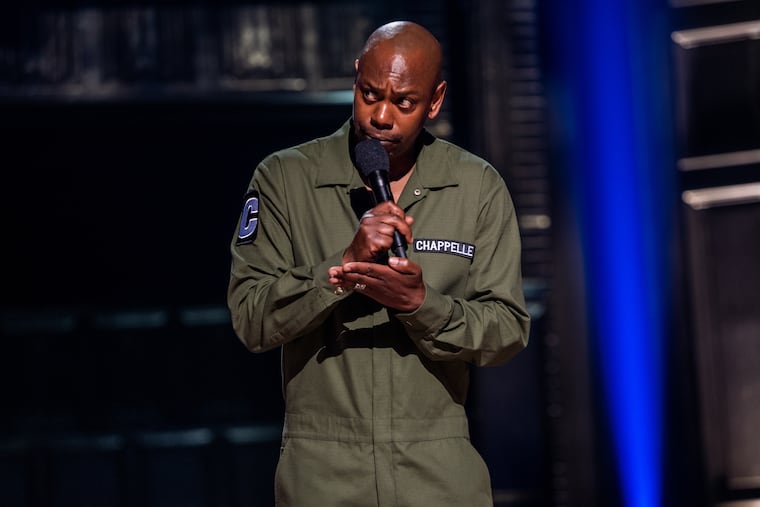Cancel culture punishes young people for speaking their minds | Opinion
When we’re all looking over our shoulders, worrying about who might cancel us, we can’t learn from each other.

This is not a column about Louis C.K. It’s not about Dave Chappelle’s jibes at transgender people, or about homophobic comments by Kevin Hart. And it’s definitely not about Kanye West.
It’s about Andi Moritz.
Never heard of her? I didn’t think so. Moritz was a freshman at Bryn Mawr in September 2016, when she posted on the school’s ride-share Facebook page to see if anyone was going to a rally for presidential candidate Donald J. Trump. Mercilessly lambasted by other students on social media, she dropped out of the college to avoid further humiliation.
In other words, she was canceled.
I’ve been thinking about Moritz in the wake of last week’s comments on cancel culture by former president Barack Obama. “There is this sense sometimes of: ‘The way of me making change is to be as judgmental as possible about other people,” Obama told a summit at his foundation. “Like, if I tweet or hashtag about how you didn’t do something right or used the wrong verb, then I can sit back and feel pretty good about myself, cause, ‘Man, you see how woke I was, I called you out.’”
Obama’s remarks generated their own backlash on social media, where critics defended online canceling as a way to “push back” against “influential people who have real potential to cause harm, or have already caused it,” wrote journalist Ernest Owens, in a New York Times article that went viral. People like Chappelle and Hart threatened “vulnerable” and “marginalized” populations, Owens declared, so they deserved whatever online shaming they received.
In the New Republic, meanwhile, Osita Nwanevu noted that many of the alleged targets of cancel culture have been crying all the way to the bank. Dave Chappelle earned a reported $35 million last year, while Kanye West — who once called slavery a “choice” — has already pulled in $150 million in 2019. Nice work, if you can get it.
But the real victims of online canceling aren’t pop-culture celebrities. They’re vulnerable young people like Andi Moritz, who can be maligned — and marginalized — with a few strategic strokes on a cellphone.
Several posters called Moritz a racist, while at least one threatened her with physical violence. “I promise, if I ever hear some slick s--- like that from any of y’all white people on this campus, you will get your s--- rocked,” the poster wrote. “You better be ready to catch these black ass hands.”
Moritz, who had struggled with depression and anxiety in high school, called the college’s suicide hotline because she “needed to talk to someone" about the online attacks, she said. Two days later, she went home and never came back.
How many other college students suffer similar injury because of what they write or say? And how many refrain from sharing their real ideas, for fear of being canceled?
We’ll never know. But in a 2018 McLaughlin and Associates poll, 54 percent of surveyed undergraduates said they felt intimidated sharing opinions that were different from those of their peers, up from 45 percent in 2017. We’ve created a culture where a single errant phrase can render you a pariah. So students bite their tongues, if they know what’s good for them.
Only it isn’t, of course. When we’re all looking over our shoulders, worrying about who might cancel us, we can’t learn from each other. We’re like actors in a bad play, mouthing words that we don’t always understand or even believe.
So let’s start speaking up on behalf of those who are shouted down. At least one Bryn Mawr student did that, denouncing her peers for “cyberbullying” Andi Moritz. But it was too little, too late. As Edmund Burke wrote, the only thing necessary for the triumph of evil is for good people to do nothing. And the only thing that will keep cancel culture going is for the rest of us to keep quiet about it.
Jonathan Zimmerman teaches education and history at the University of Pennsylvania. He is the author of “The Amateur Hour: A History of College Teaching in America,” which will be published next year by Johns Hopkins University Press.